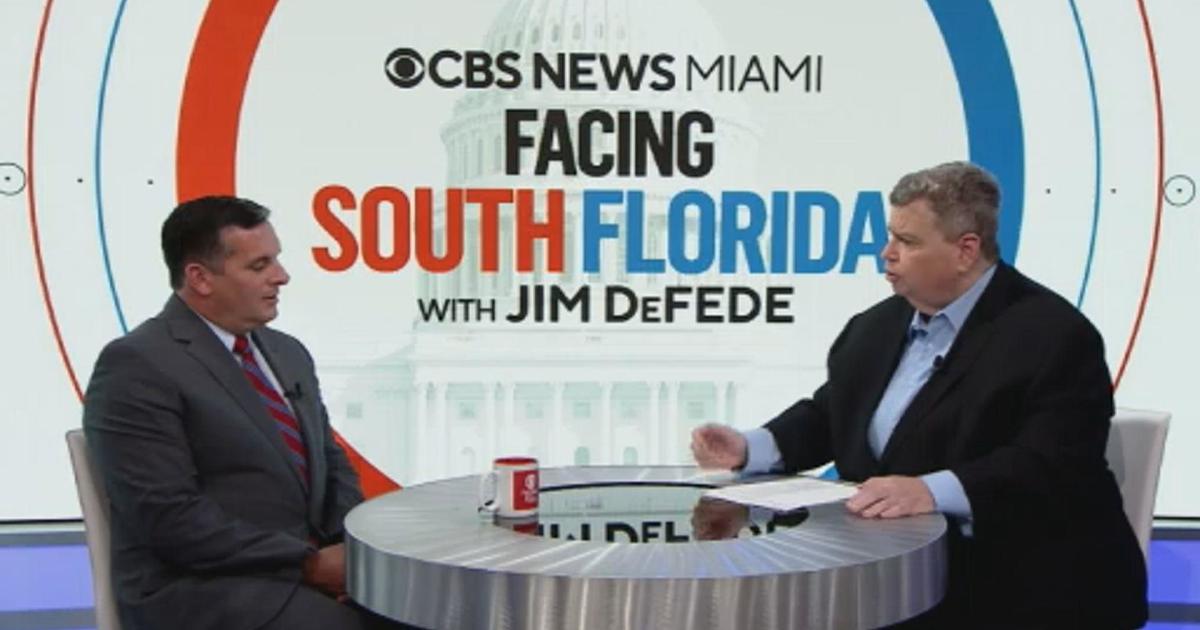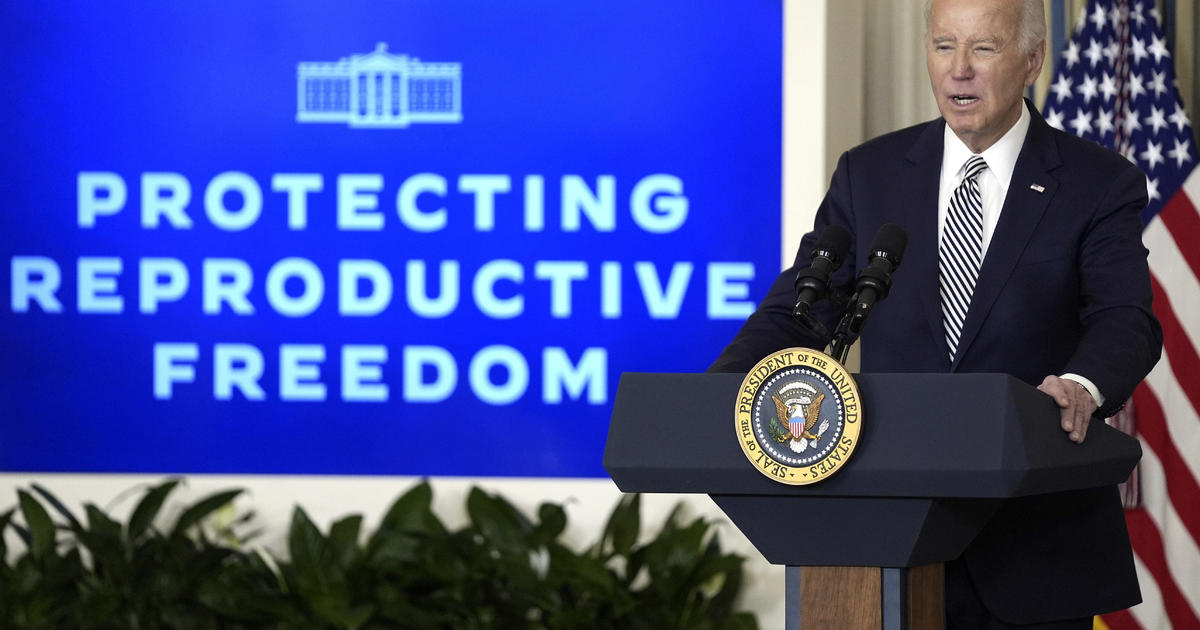Documents Show Private Discussions In Senate Redistricting
Follow CBSMIAMI.COM: Facebook | Twitter
TALLAHASSEE (NSF) – Senate leaders crafting new districts for the chamber in 2012 held confidential meetings to discuss maps with lawmakers before the maps were made public, while at the same time boasting about "the most open and transparent redistricting process in Florida's history," according to court documents.
Depositions and other evidence in a long-running lawsuit about the Senate districts were released this week, at the same time that lawmakers are holding a special session to redraw congressional lines that were struck down as unconstitutional gerrymanders by the Florida Supreme Court.
The Senate has essentially admitted that its districts also violate the "Fair Districts" standards approved by voters in 2010, and the Legislature will return to overhaul that map in a special session beginning in October. In response to a Miami Herald-Tampa Bay Times story on the documents published Thursday, Senate President Andy Gardiner, R-Orlando, said that admission was only made because of the court's earlier ruling on the congressional districts.
"The Senate entered in to a consent judgment with the plaintiffs because on July 9, more than three years after they approved the current Senate map, the Florida Supreme Court imposed a new and unprecedented definition of legislative intent," Gardiner said.
In any case, the documents provide some of the most in-depth information about how the maps for the 40 Senate districts were produced.
In an at-times contentious deposition taken last month, former Senate aide John Guthrie discussed a series of behind-the-scenes meetings among himself, then-Senate Reapportionment Chairman Don Gaetz, R-Niceville, and other senators. Among those who had in-person or video-conferencing meetings with Guthrie and Gaetz, Guthrie recalled, were Gardiner; Sen. Jack Latavala, R-Clearwater; and then-Sen. Nan Rich, D-Weston. Guthrie said a meeting also likely took place with then-Sen. Larcenia Bullard, D-Miami.
"And Chairman Gaetz and I had had conversations with --- collaborating with staff, but also in the week preceding release of that, there were some conversations with senators just to report to those senators the progress that Senator Gaetz had made on the map that he was working on," Guthrie said.
The final version of Gaetz's draft of the map was not shown to senators before it was released to the public, Guthrie said. But those who had meetings with the chairman and Guthrie saw an earlier version.
The Senate was drawing lines for the first time under the Fair Districts standards, which required the map to be drawn without attempting to benefit or harm a political party or incumbent. Lawyers fighting the map in court on behalf of a coalition of voting-rights organizations pressed Guthrie on whether senators were able to recommend that their districts be drawn in a particular way.
"One of the purposes of those meetings was for the chairman and staff to get insights from members of the committee about factors that --- that (they) may not have been otherwise aware of regarding what made sense in terms of providing effective representation to the constituencies in their region," Guthrie said.
Guthrie said Gaetz had the final say on whether any changes to the map were made, based on the meetings with the senators.
With lawyers for the Legislature frequently objecting during the deposition, David King --- an attorney for the voting-rights organizations --- suggested that the meetings with Guthrie and Gaetz were intentionally structured in a way that they wouldn't trigger requirements that the public be told about the amendments or allowed to attend. Any meeting of at least three lawmakers has to be public.
"I don't agree with the premise that the aim was to conduct meetings in secret," Guthrie told King. "The -- the aim was to conduct meetings and to comply with the Senate rules."
"And the aim was to conduct nonpublic meetings; right?" King said.
"The meetings, as we have already established, in fact, were not public," Guthrie said.
The Senate on Thursday pushed back against the idea that there was anything improper about the meetings. A "fact check" sent out by the chamber's leadership said senators were warned ahead of time to be careful about what they said.
"Conversations with Senator Gaetz about the proposal will be governed by the constitutional provisions that, 'no apportionment plan or individual district shall be drawn with the intent to favor or disfavor a political party or an incumbent,' " the guidance said.
It also noted that Gaetz referred to getting input from senators during a public Dec. 6, 2011, meeting on the maps.
Guthrie also told King that he wasn't aware that political consultants in some cases got what appear to be copies of some of his work before those copies were made public. Similar releases from a House aide to GOP consultants were among the reasons that court struck down the congressional maps.
Guthrie said he wasn't sure that there was a leak in the Senate redistricting office.
"We certainly haven't proven how or why or who --- we haven't proven that there is a leak. And we haven't proven who or how or why such a leak occurred," he told King at one point.
"Well, if there is not a leak, Mr. Guthrie, how is it that Mr. Heffley and Mr. Terraferma have the data on 14 of your districts that end up in (a Senate plan). ... How does that happen without a leak?" King asked, referring to Republican consultant Rich Heffley and state party staffer Frank Terraferma.
"I don't know," Guthrie responded.
The News Service of Florida's Brandon Larrabee contributed to this report.



